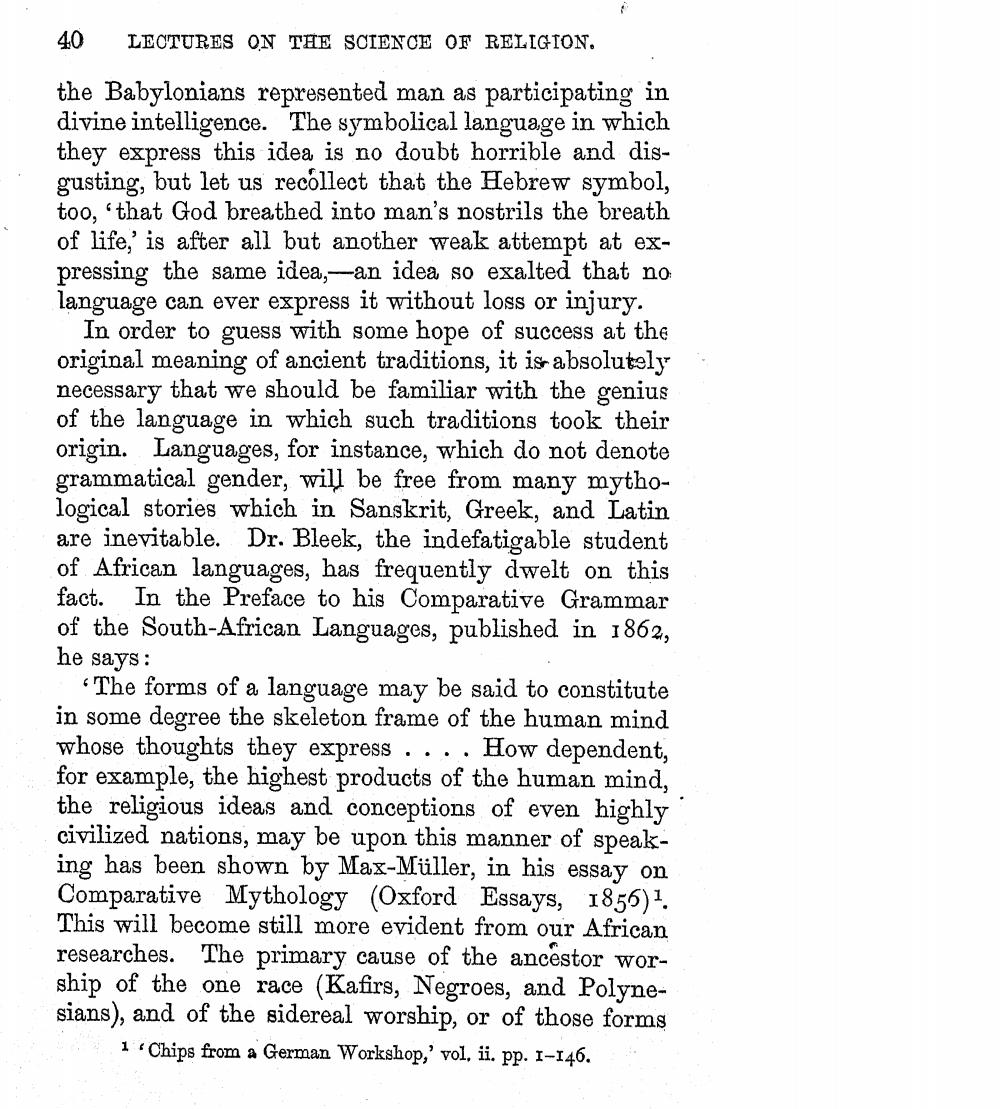________________
40
LECTURES ON THE SCIENCE OF RELIGION.
the Babylonians represented man as participating in divine intelligence. The symbolical language in which they express this idea is no doubt horrible and disgusting, but let us recollect that the Hebrew symbol, too, that God breathed into man's nostrils the breath of life,' is after all but another weak attempt at expressing the same idea,-an idea so exalted that no language can ever express it without loss or injury.
In order to guess with some hope of success at the original meaning of ancient traditions, it is absolutely necessary that we should be familiar with the genius of the language in which such traditions took their origin. Languages, for instance, which do not denote grammatical gender, will be free from many mythological stories which in Sanskrit, Greek, and Latin are inevitable. Dr. Bleek, the indefatigable student of African languages, has frequently dwelt on this fact. In the Preface to his Comparative Grammar of the South-African Languages, published in 1862, he says:
The forms of a language may be said to constitute in some degree the skeleton frame of the human mind whose thoughts they express How dependent, for example, the highest products of the human mind, the religious ideas and conceptions of even highly civilized nations, may be upon this manner of speaking has been shown by Max-Müller, in his essay on Comparative Mythology (Oxford Essays, 1855)1. This will become still more evident from our African researches. The primary cause of the ancestor worship of the one race (Kafirs, Negroes, and Polynesians), and of the sidereal worship, or of those forms
1 Chips from a German Workshop,' vol. ii. pp. 1-146.




